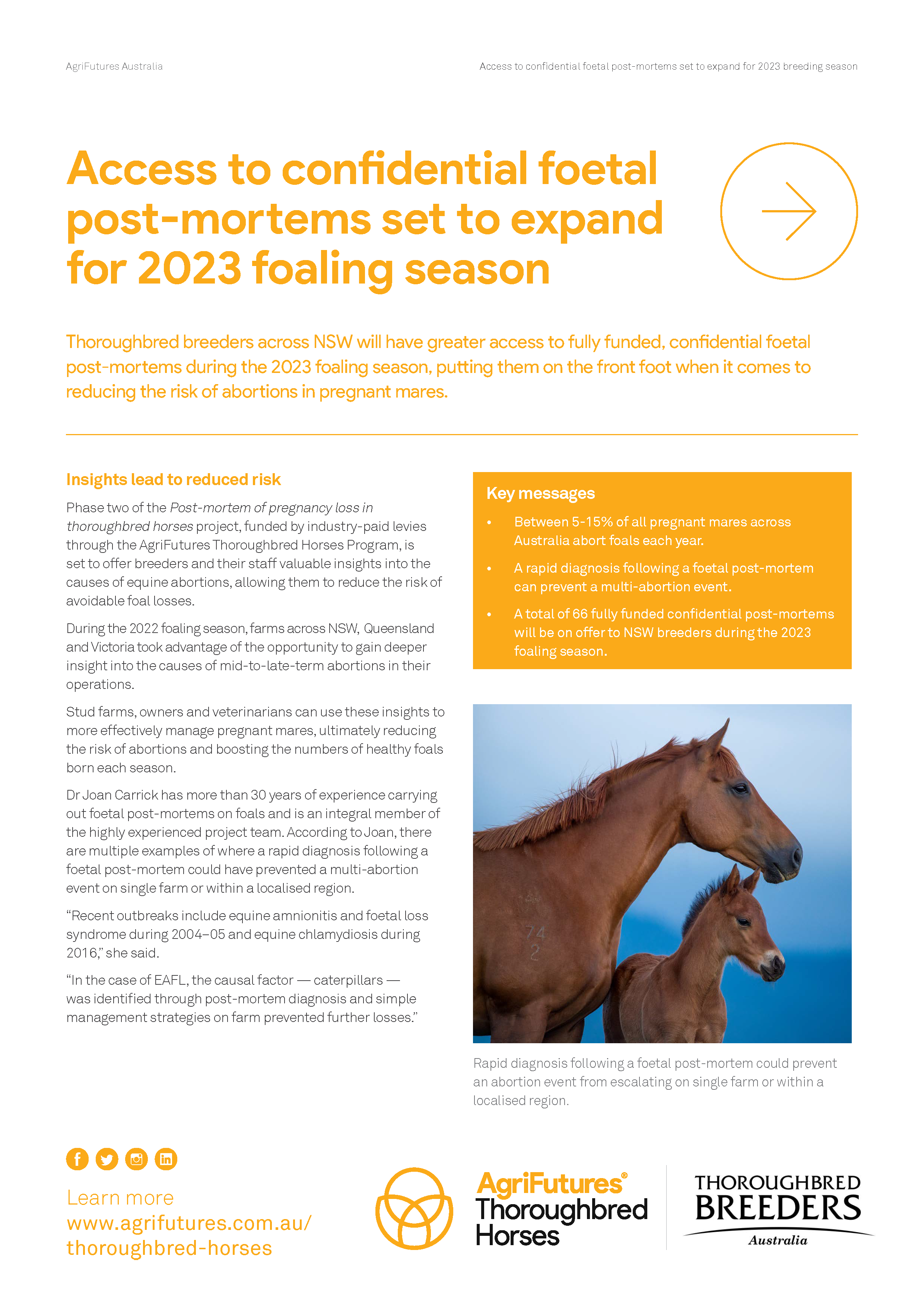Thoroughbred breeders across NSW will have greater access to fully funded, confidential foetal post-mortems during the 2023 foaling season, putting them on the front foot when it comes to reducing the risk of abortions in pregnant mares.
Phase two of the Post-mortem of pregnancy loss in thoroughbred horses project, funded by industry-paid levies through the AgriFutures Thoroughbred Horses Program, is set to offer breeders and their staff valuable insights into the causes of equine abortions, allowing them to reduce the risk of avoidable foal losses.
During the 2022 foaling season, farms across NSW, Queensland and Victoria took advantage of the opportunity to gain deeper insight into the causes of mid-to-late-term abortions in their operations. Stud farms, owners and veterinarians can use these insights to more effectively manage pregnant mares, ultimately reducing the risk of abortions and boosting the numbers of healthy foals born each season.
Dr Joan Carrick has more than 30 years of experience carrying out foetal post-mortems on foals and is an integral member of the highly experienced project team. According to Joan, there are multiple examples of where a rapid diagnosis following a foetal post-mortem could have prevented a multi-abortion event on single farm or within a localised region.
“Recent outbreaks include equine amnionitis and foetal loss syndrome during 2004–05 and equine chlamydiosis during 2016,” she said.
“In the case of EAFL, the causal factor — caterpillars — was identified through post-mortem diagnosis and simple management strategies on farm prevented further losses.”





